Life
Sign up for our newsletter
We summarize the week's scientific breakthroughs every Thursday.
-
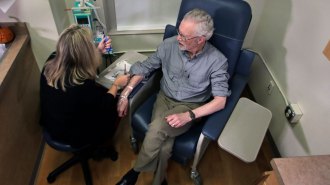 Health & Medicine
Health & MedicineFDA approved a new Alzheimer’s drug despite controversy over whether it works
A new Alzheimer's treatment slows progression of the disease, the drug’s developers say. But some researchers question its effectiveness.
-
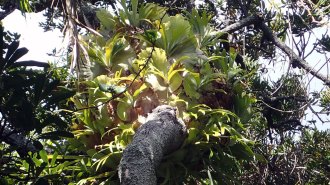 Plants
PlantsThese ferns may be the first plants known to share work like ants
Staghorn ferns grow in massive colonies where individual plants contribute different jobs. This may make them “eusocial,” like ants or termites.
By Jake Buehler -
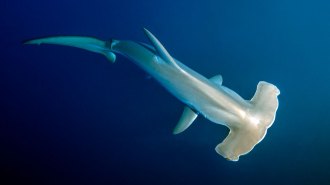 Paleontology
PaleontologySomething mysteriously wiped out about 90 percent of sharks 19 million years ago
Deep sediments beneath the Pacific Ocean revealed a mystery: a massive shark die-off with no obvious cause.
-
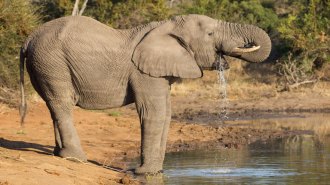 Animals
AnimalsNewly recognized tricks help elephants suck up huge amounts of water
New ultrasound imaging reveals what goes on inside a pachyderm’s trunk while feeding. It can snort water at the rate of 24 shower heads.
By Sid Perkins -
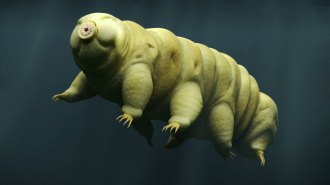 Life
LifeEven hard-to-kill tardigrades can’t always survive being shot out of a gun
A recent experiment put tardigrades’ indestructibility to the test by firing the critters at speeds up to 1,000 meters per second.
-
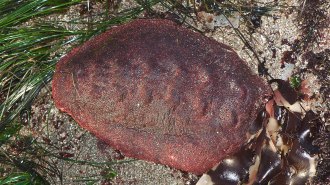 Animals
AnimalsThe teeth of ‘wandering meatloaf’ contain a rare mineral found only in rocks
The hard, magnetic teeth of the world’s largest chiton contain nanoparticles of santabarbaraite, a mineral never seen before in biology.
-
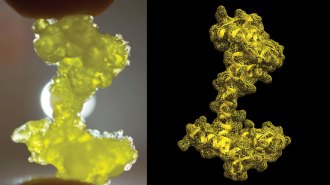 Chemistry
ChemistryA sweet father-son bond inspires tasty new molecule models
New edible models of proteins could spark students’ interest in the world of chemistry, especially students who are blind.
By Carmen Drahl -
 Neuroscience
NeurosciencePlaying brain training games regularly doesn’t boost brainpower
Comparing brain training program users with those who don’t do the mini brain workouts, scientists found no proof that the regimens boosted brainpower.
-
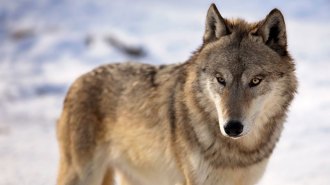 Animals
AnimalsGray wolves scare deer from roads, reducing dangerous collisions
The predators use roads as travel corridors, creating “a landscape of fear” that keeps deer away and saves millions of dollars a year, a study finds.
By Jack J. Lee -
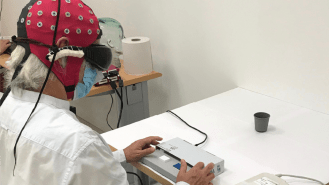 Genetics
GeneticsA gene-based therapy partially restored a blind man’s vision
Light-activated proteins inserted in eye nerve cells and special goggles help the man, who lost his sight due to retinitis pigmentosa, see objects.
-
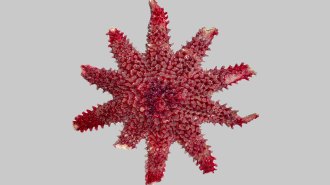 Animals
AnimalsUrchin mobs team up to butcher sea stars that prey on them
Urchins are important herbivores in nearshore ecosystems, but are not strict vegetarians, with hunger that extends even to munching predatory nemeses.
By Jake Buehler -
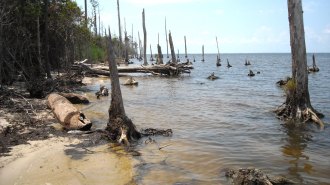 Climate
Climate‘Tree farts’ contribute about a fifth of greenhouse gases from ghost forests
Greenhouse gases from dead trees play an important role in the overall environmental impact of ghost forests, a new study suggests.